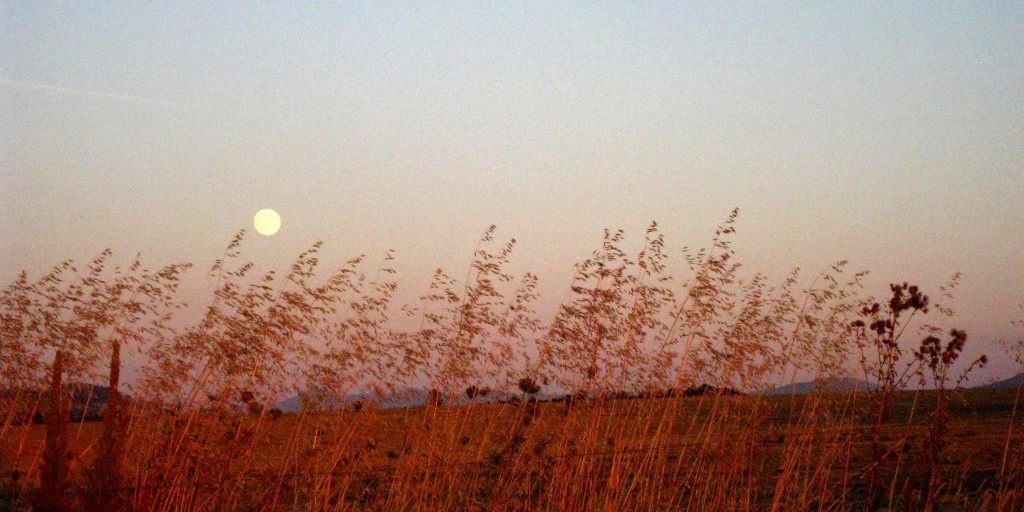The world was waiting for Y2K. Depending on who you listened to, we were either facing a massive computer failure or the catastrophic end to the world.
But I wasn’t too concerned. Because my world, as I knew it, had already ended.
In an eighteen month period, I had lost my father, and for all intents and purposes my mother, my job, and every single thing I owned with the exception of a suitcase of clothes.
The year 1999 started well. I liked my job in Vancouver, and loved the view of the mountains from my corner office. I’d been there nearly three years but still owned my house in Toronto. It was time to make a decision. My Toronto tenant was moving out. Would I re-rent the house or sell it? I listed it. It sold quickly with closing in early August. I started to think about buying a house in Vancouver.
On the afternoon of August 15, my boss asked me to join him in the boardroom. There was nothing unusual about that. In fact, just before lunch we’d been in the boardroom talking about the arrangement I’d made to get pro bono advertising for an important project, saving our organization several thousand dollars.
“Good work,” he had said.
As we walked down the hall towards the boardroom, I had this weird feeling; a premonition maybe. Something felt wrong. Two people were seated at the boardroom table; a man I didn’t recognize and the head of human resources.
I have no idea what was said. But I got the drift. I was laid off, fired, sacked, given my marching orders. Whatever it was they said, whatever nice words they’d used, I was done. I was asked to return to my office, pack up my personal belongings and leave the building. To this day, it’s not clear to me why this happened. They said they were downsizing the department. They offered me a package that included the transition and outplacement services of the man at the table whom I had not recognized.
I don’t remember packing up my office, leaving the building or driving home. The first I remember after leaving the boardroom is sitting in my living room, my head in my hands, crying. I just wanted to go home to Toronto – to my house in the Beaches — to sit on the front porch with its view of Lake Ontario; to wave to my neighbours, and be close to my friends. But I couldn’t go home. I’d just sold my house.
I spent the next three months working with Mr. Outplacement Services. Outplacement services, I hate that expression. People shouldn’t be outplaced. Corporate communication jobs were not plentiful in Vancouver. You need head offices and government departments. Mr. Outplacement Services said maybe I should consider moving to Victoria, or retraining. I kept thinking how much better off I’d be if the company had added the money they were paying for these services to my severance package.
The mountains were beginning to lose their appeal. Who needs mountains? I needed a job. Vancouver is a cliquey town and I hadn’t built up a professional support system. I started to tap into my Toronto network.
Within a week, the phone rang. A former colleague asked if I’d be interested in coming to Toronto for six weeks to work on a special project.
“Is Big Bird yellow?”
The next week I was on a plane with a suitcase of clothes. Six weeks turned into three months. I gave notice on my rented house in Vancouver and arranged for everything to be packed up and stored. I chose a reputable moving company that would also be able, if and when necessary, to do a cross country move. That way, I thought, I’ve still got one foot in both provinces.
I was content in my tiny furnished apartment, a five minute walk from High Park. While technically in the basement, I was at ground level and looked out through large wrap around bay windows onto the gardens, kept so beautifully by the elderly Japanese couple who owned and lived in the house. It was a very large house with stained glass windows throughout; so many, my three-year old granddaughter told people that her Janna lived in a church.
On December 1st the phone rang. It was my brother calling from New Zealand.
“It’s Dad,” he said. “He’s gone.”
“Gone where?” was my first thought.
My father was a healthy 88 year old who’d only retired from real estate the year before. He was one of those guys you couldn’t image old, let alone dead. On Sunday evening he had said to my mother, “I don’t feel too good, the doctor’s office will be closed, I think I’ll go to emergency.”
He jumped in his brand new Mitsubishi – he bought a new car every year – and drove himself to hospital. He walked in the front door and dropped dead of a massive heart attack. My dad always said, “If you wake up and you’re above ground, you have nothing to complain about.” I thought how shocked he must have been to wake up and find he was not above ground.
When my father died, my parents were living in their own home, tending a large garden, growing their own vegetables, visiting the elderly, reading the Manawatu Evening Standard, watching television until 10 and then going to bed. The shock was too much for my mother and she started a decline into dementia. We wondered later if perhaps my father had been covering up her forgetfulness.
The year 2000 arrived and we all survived, airplanes did not drop from the sky, the world economy did not collapse. The apocalypse had been averted.
In March, I went to New Zealand to help move my mother into a nursing home. I was glad it was my dad who had gone first. He would have hated to see her this way. It wasn’t long before my modest, perfectly-groomed, fantastically well-organized mother was getting dressed in mis-matched clothes, peeing in the garden and falling asleep on any bed in any room with an unlocked door.
With my father gone and my mother in dementia, I felt like an orphan and I needed roots. Outside of New Zealand, Toronto was where I was from. I decided to make a permanent move back.
I started looking for a larger apartment. I even began looking at real estate. I phoned the storage company in Vancouver to arrange the shipping of all my stuff to Toronto. The number was out of service. I checked Yellow Pages, I checked with 411. No luck. I asked a friend in Vancouver to go to the storage facility. It was empty.
I couldn’t believe it. Everything gone. It couldn’t be true. It must be somewhere. I tried to make lists of what was missing, but that made it real. I couldn’t do it. I cried. But eventually, I called the Vancouver police.
I was transferred to Detective Shakespeare.
A deep gravelly voice answered. She didn’t sound a bit like someone named Shakespeare.
“Well, holy cow,” she said when I explained the situation. “I wonder what we can do about that. “
It turned out they could do nothing. No one else had reported anything similar. The company seemed to have disappeared into thin air taking all my worldly possessions with it.
I came to terms with having nothing. In fact, I began to enjoy it. I felt light, unencumbered; like I did when I was young.
“I don’t need stuff,” I’d say to myself, “I’m happy, really happy.”
My barn had burnt down and now I could see the moon.
One Sunday evening, the phone rang. It was a Vancouver friend.
“Sit down,” she said.
“Shit,” I thought. “What now?”
“I think I’ve found your missing storage,” she said
I did as she suggested, I sat down with a large glass of wine.
It turned out her neighbour had a locker with a nearby storage facility. The neighbour, who’d heard my story, had been chatting with the facility attendant.
He mentioned that he’d recently sent a large locker of personal belongings to auction because it had been there unpaid for more than a year. It had come to his facility from another storage company.
“Do you think it’s yours, do you think it’s yours?” my friend shouted into the phone.
I felt a rush of excitement and hope and then at the same time, a sort of sick feeling.
I actually liked living with nothing.
Now I would have responsibilities; expensive responsibilities.
“Do I want this?” I kept asking myself.
Then I thought of the large, framed, hand-painted photograph of my grandmother that I had been moving around the world for the past 30 years. I thought of the early 1900s hutch that had stood in the kitchen as my children grew up. The hutch with the wine stains from the numerous dinner parties we’d enjoyed and where I kept the cast iron crock pot that had belonged to my mother. And I thought of the box filled with my favourite drawings that my kids had given me. Yes, of course I wanted it. I wanted it all back.
That tough year, I lost a lot but I found something too. I found the moon. It comforts me to know that no matter what happens, it is there, even when I can’t see it.
And just to make sure I don’t forget, I keep the wise words of the 17th Century Japanese poet, Mizuta Masahide, tacked to the cork board above my desk.
Barn’s Burnt Down. I Can Now See the Moon.






